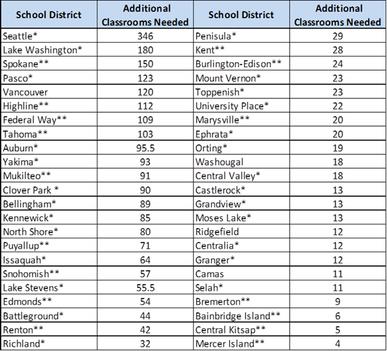Dear Neighbors,
We are less than one week away from the end of this short legislative session and there is a lot to report on.
Update on my bills
 I am pleased that my bill concerning suicide prevention, ESHB 2315, passed the Senate unanimously yesterday! Passage of this bill in the legislature is cause for celebration! I am pleased that my bill concerning suicide prevention, ESHB 2315, passed the Senate unanimously yesterday! Passage of this bill in the legislature is cause for celebration!
When it is signed into law, this measure will become the third step in the suicide prevention call for action I started in 2011. ESHB 2315 expands the list of professionals who must complete suicide prevention training to include chiropractors, naturopaths, osteopathic physicians and assistants, physical therapists and assistants, physicians and nurses. We know that having our medical colleagues receive additional training in suicide assessment and management is critical since they are often the first point of entry when someone reaches out for help. I have no doubt that this bill will save precious lives. |
Another bill I introduced, ESHB 2164, aimed at providing early treatment to juvenile firearm offenders, also passed the legislature!
ES HB 2614 would require most juveniles adjudicated of unlawful possession of a firearm to participate in certain evidence-based or research-based programs. HB 2614 would require most juveniles adjudicated of unlawful possession of a firearm to participate in certain evidence-based or research-based programs.
Under current law, juveniles who get involved with firearms and crime at a young age don’t get the intervention they need to keep from becoming career criminals. It may take multiple offenses for a kid to go through treatment, and up to five convictions before he or she is committed to the Juvenile Rehabilitation Administration (JRA). The programs that qualify under this bill include aggression replacement training, functional family therapy, or any other pertinent evidence or research-based program that is also cost-effective. The bill also requires JRA to compile information on juvenile offenders found to be in unlawful possession of a firearm and who made their initial contact with the criminal justice system between 2005 and 2013, and report its findings to the Legislature by October 1, 2014. |
Prioritizing help for the mentally ill – and their families
On July 5, 2013, Doug and Nancy Reuter received the most heartbreaking news of their lives. Their 28-year-old son, Joel, was dead.
Joel had struggled with bi-polar disorder since 2004 and, in the weeks leading up to his death, had refused his medications. Doug and Nancy tried over and over to get their son the mental health treatment he desperately needed. Each time they got the same answer – Washington state’s involuntary commitment law was too narrow to detain Joel.
On July 5th, Joel fired a shot off the balcony of his apartment. He thought he was shooting at zombies. Joel was killed by officers nearby.
No one should have to suffer the same fate as Joel – or live with the untimely death of a child like Doug and Nancy.
The House operating budget provides $10.3 million to make important changes to give families that deal with mental illness the support they desperately need.
The dollars will go towards building capacity in our communities so we can strengthen our involuntary treatment laws by allowing for more input from those who know the individual best.
Mental illness can happen to anyone and preventing tragedies like the Reuter family’s couldn’t be a higher priority. As we move into budget negotiations with the Senate, I’ll be working hard to protect these critical dollars.
Transportation budget sent to Senate
This week the House of Representatives passed a supplemental transportation budget with strong bipartisan support. This no-new-taxes budget makes small but meaningful changes that fulfill our existing obligations while planning for the years to come.
 It keeps the promises made to the voters when they approved the 2003 and 2005 gas tax increases by funding ongoing construction of numerous projects. This includes I-90 Snoqualmie Pass, I-405, US 395, SR 520, the Colman Dock and the Mukilteo Ferry Terminal. It addresses the issue of cost overruns on the 520 bridge project by refinancing toll revenues and redirecting savings found in other projects. No projects are delayed or cancelled, and taxpayers won’t be called on to pay for the mistakes that were made. It keeps the promises made to the voters when they approved the 2003 and 2005 gas tax increases by funding ongoing construction of numerous projects. This includes I-90 Snoqualmie Pass, I-405, US 395, SR 520, the Colman Dock and the Mukilteo Ferry Terminal. It addresses the issue of cost overruns on the 520 bridge project by refinancing toll revenues and redirecting savings found in other projects. No projects are delayed or cancelled, and taxpayers won’t be called on to pay for the mistakes that were made. |
This supplemental transportation budget also makes investments that allow our state to secure federal funds and save money over the long term. Funding for local Amtrak routes will bring in more than $800 million from the federal government for Washington’s railways.
Small investments in information technology at the Department of Licensing and project delivery at the Washington State Department of Transportation will mean better DOL service, better design and construction practices, and a more efficient use of our transportation budget.
Washingtonians should be able to get from A to B without getting stuck in wasteful gridlock. This budget is a step forward with the resources that we have available. To really combat the increasing demands on our transportation system, however, we will need the significant investments that only a transportation revenue package will provide.
10,000 new jobs to build schools and clean environment win bipartisan approval in the House
Up to 10,000 jobs would be created by a school construction plan (House Bill 2797) and a capital budget (Senate Bill 6020) passed by the House this week by overwhelming bipartisan votes.
The school legislation puts up to $700 million toward building classrooms in kindergarten through third grade, when smaller class sizes are known to be critical for a child’s academic success. A chart showing how many classrooms are needed in some of Washington’s school districts is below. An estimated 7,500 construction jobs would be created.
The capital budget funds projects to clean up the environment, help schools, build mental health facilities and other local priorities, with 2,500 construction jobs created.
Both bills passed with at least 90 lawmakers from both parties voting in favor. They are now in the Senate.

Sources: *OSPI phone survey, **legislators contacting districts; may not be based on 90 sq. ft.; *** OSPI draft information based on 90 sq. ft.
The happy state of Washington
Are you happy? Several publications are calling Washington one of the happiest of the 50 states. According to The Fiscal Times, we come in at a healthy No. 9. The two Dakotas, Nebraska, Minnesota and Montana make up the top five.
These latest Happy States standings are based on “more than 178,000 interviews with adults throughout 2014, tracking such factors as life evaluation, emotional health, work environment, physical health, healthy behaviors, and basic necessities.” America’s five “Most Miserable States” — in descending order of contentedness — are Ohio, Alabama, Mississippi, Kentucky, and West Virginia.
Also see:
The 10 Happiest States in America (March 3, 2014).
Gallup Publishes 2013 Well-Being Ranks: Where Does Your State Fall? (Feb. 23, 2014).

Look for an end-of-session wrap up in my e-newsletter next week. Thank you again for the opportunity to serve you in the legislature!
Sincerely,
![]()
